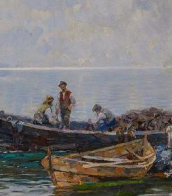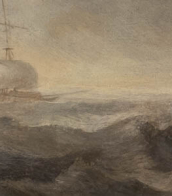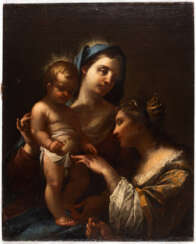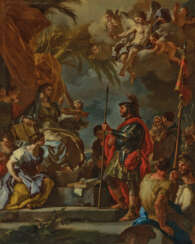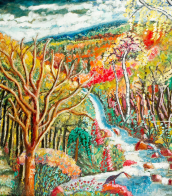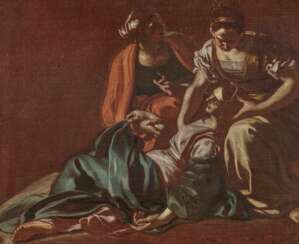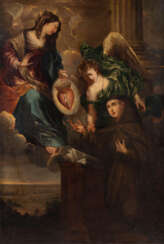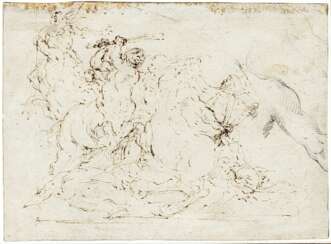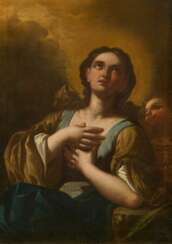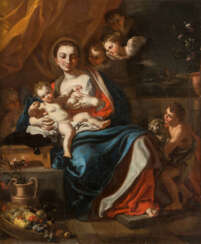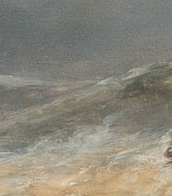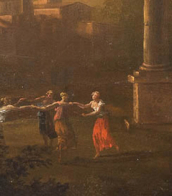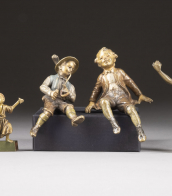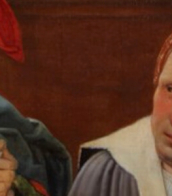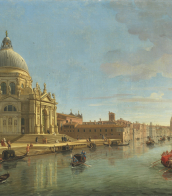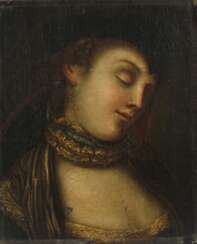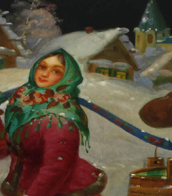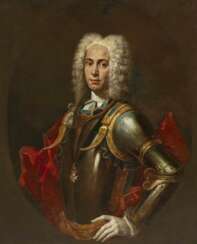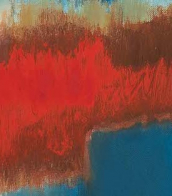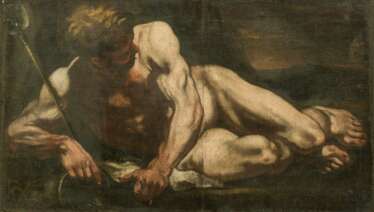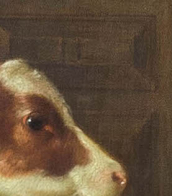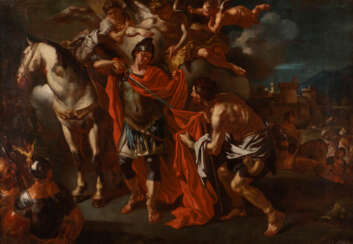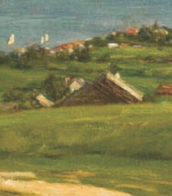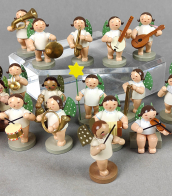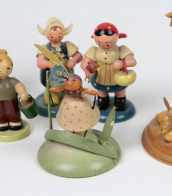francesco solimena (1657 - 1747)
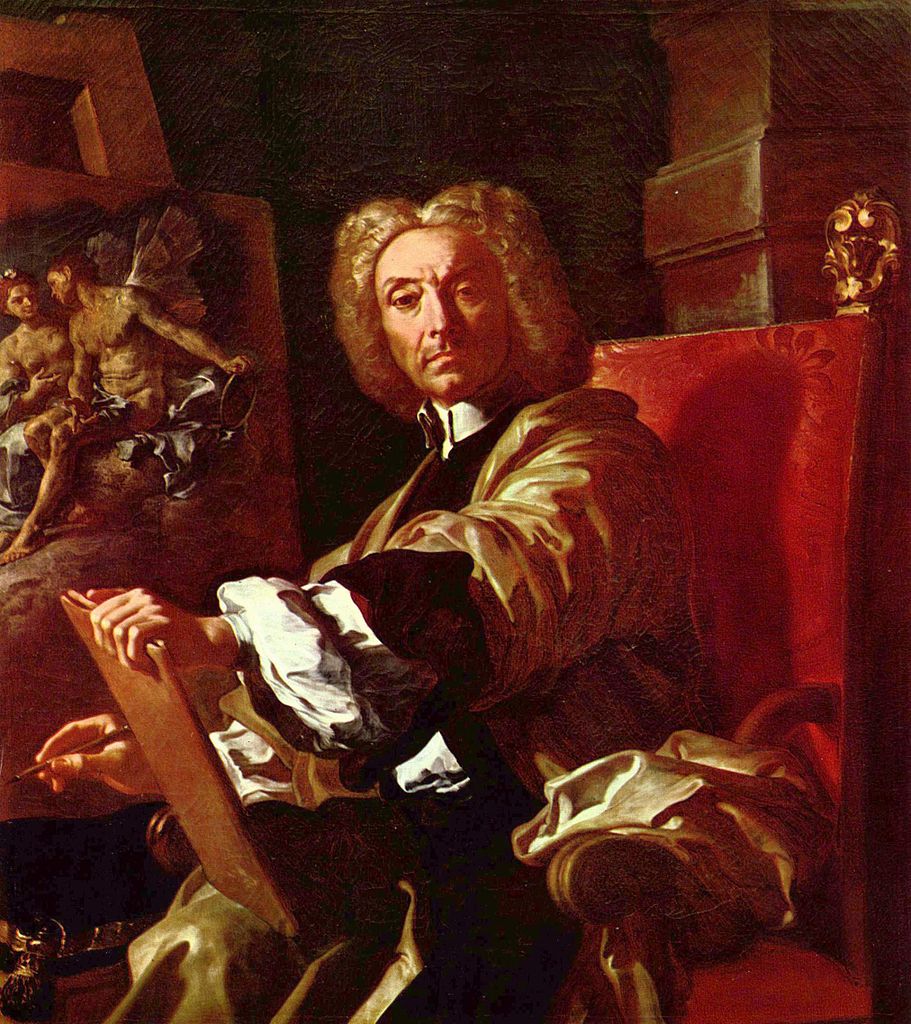
Francesco Solimena was an Italian painter of the seventeenth and eighteenth centuries. He is known as a representative of the Neapolitan school of late Baroque painting. The painter's creativity was highly appreciated by his contemporaries, during his long career he earned a large fortune by selling his works. The artist's biography is closely linked to Naples, the city in which the great genius spent most of his life.
Francesco Solimena was devoted to the religious genre, for which he was often called "Abbot Ciccio" during his lifetime. He educated many famous artists. Solimena's paintings are now in museums in St. Petersburg (Hermitage), London (National Gallery), New York (Metropolitan Museum of Art), Paris (Louvre) and other cities.
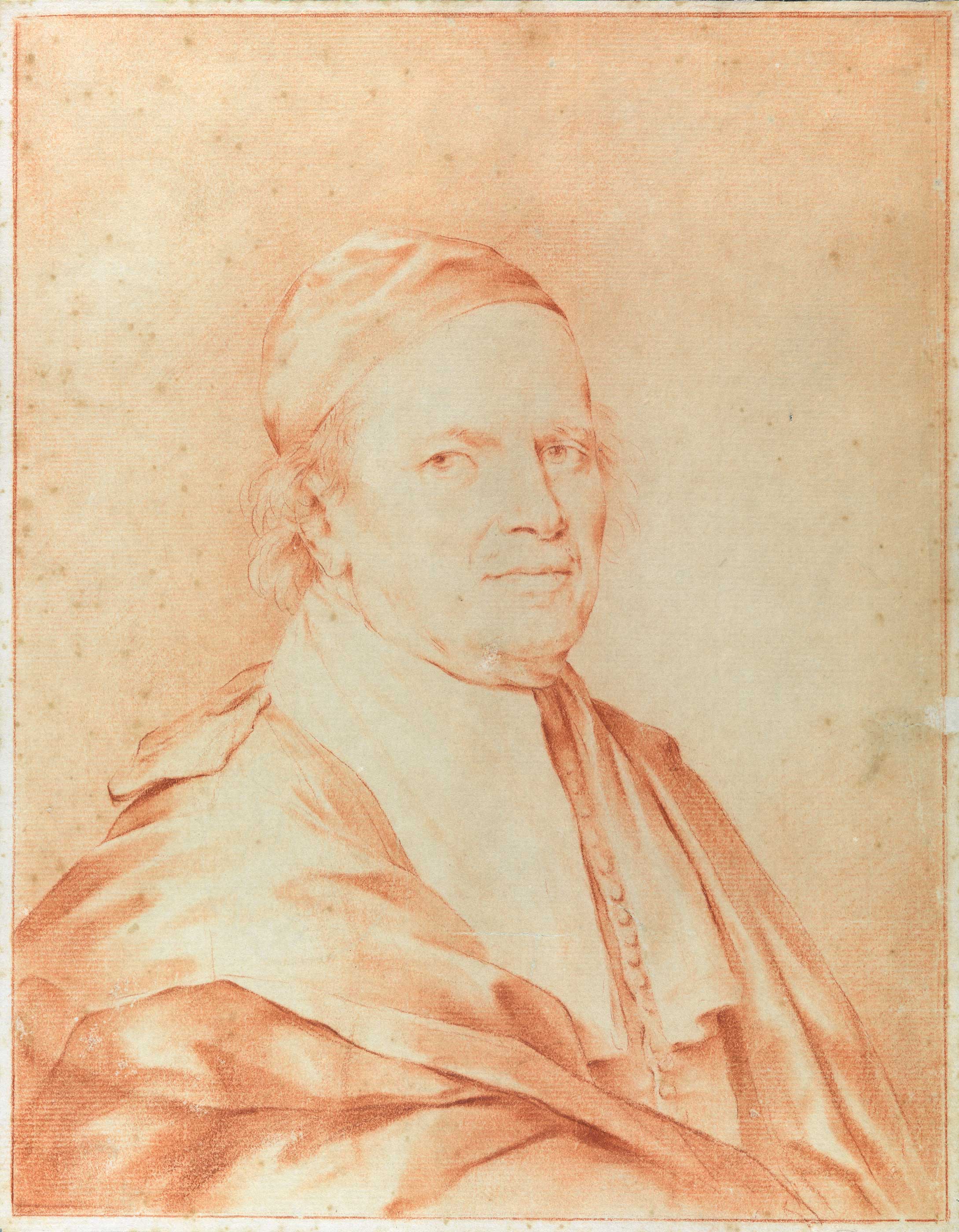
Carlo Cignani was an Italian painter, a representative of the Bolognese Baroque school.
Although he was educated in Bologna, he was more influenced by Correggio. The last 20 years of his life the artist spent in Forli, engaged in painting churches. The fresco "Assumption of the Virgin" in the dome of the cathedral of Forlì was painted by Cignani on the motives of the painting of the dome of the Cathedral of Parma, made by Correggio.
His son Felice (1660-1724) and nephew Paolo (1709-1764) were also artists.
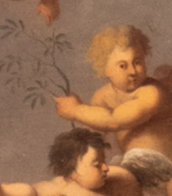

Francesco Solimena was an Italian painter of the seventeenth and eighteenth centuries. He is known as a representative of the Neapolitan school of late Baroque painting. The painter's creativity was highly appreciated by his contemporaries, during his long career he earned a large fortune by selling his works. The artist's biography is closely linked to Naples, the city in which the great genius spent most of his life.
Francesco Solimena was devoted to the religious genre, for which he was often called "Abbot Ciccio" during his lifetime. He educated many famous artists. Solimena's paintings are now in museums in St. Petersburg (Hermitage), London (National Gallery), New York (Metropolitan Museum of Art), Paris (Louvre) and other cities.
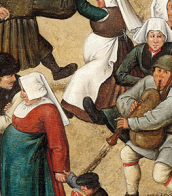

Francesco Solimena was an Italian painter of the seventeenth and eighteenth centuries. He is known as a representative of the Neapolitan school of late Baroque painting. The painter's creativity was highly appreciated by his contemporaries, during his long career he earned a large fortune by selling his works. The artist's biography is closely linked to Naples, the city in which the great genius spent most of his life.
Francesco Solimena was devoted to the religious genre, for which he was often called "Abbot Ciccio" during his lifetime. He educated many famous artists. Solimena's paintings are now in museums in St. Petersburg (Hermitage), London (National Gallery), New York (Metropolitan Museum of Art), Paris (Louvre) and other cities.
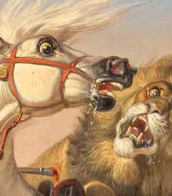

Francesco Solimena was an Italian painter of the seventeenth and eighteenth centuries. He is known as a representative of the Neapolitan school of late Baroque painting. The painter's creativity was highly appreciated by his contemporaries, during his long career he earned a large fortune by selling his works. The artist's biography is closely linked to Naples, the city in which the great genius spent most of his life.
Francesco Solimena was devoted to the religious genre, for which he was often called "Abbot Ciccio" during his lifetime. He educated many famous artists. Solimena's paintings are now in museums in St. Petersburg (Hermitage), London (National Gallery), New York (Metropolitan Museum of Art), Paris (Louvre) and other cities.
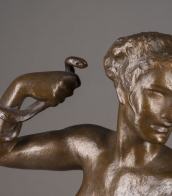

Francesco Solimena was an Italian painter of the seventeenth and eighteenth centuries. He is known as a representative of the Neapolitan school of late Baroque painting. The painter's creativity was highly appreciated by his contemporaries, during his long career he earned a large fortune by selling his works. The artist's biography is closely linked to Naples, the city in which the great genius spent most of his life.
Francesco Solimena was devoted to the religious genre, for which he was often called "Abbot Ciccio" during his lifetime. He educated many famous artists. Solimena's paintings are now in museums in St. Petersburg (Hermitage), London (National Gallery), New York (Metropolitan Museum of Art), Paris (Louvre) and other cities.


Francesco Solimena was an Italian painter of the seventeenth and eighteenth centuries. He is known as a representative of the Neapolitan school of late Baroque painting. The painter's creativity was highly appreciated by his contemporaries, during his long career he earned a large fortune by selling his works. The artist's biography is closely linked to Naples, the city in which the great genius spent most of his life.
Francesco Solimena was devoted to the religious genre, for which he was often called "Abbot Ciccio" during his lifetime. He educated many famous artists. Solimena's paintings are now in museums in St. Petersburg (Hermitage), London (National Gallery), New York (Metropolitan Museum of Art), Paris (Louvre) and other cities.


Francesco Solimena was an Italian painter of the seventeenth and eighteenth centuries. He is known as a representative of the Neapolitan school of late Baroque painting. The painter's creativity was highly appreciated by his contemporaries, during his long career he earned a large fortune by selling his works. The artist's biography is closely linked to Naples, the city in which the great genius spent most of his life.
Francesco Solimena was devoted to the religious genre, for which he was often called "Abbot Ciccio" during his lifetime. He educated many famous artists. Solimena's paintings are now in museums in St. Petersburg (Hermitage), London (National Gallery), New York (Metropolitan Museum of Art), Paris (Louvre) and other cities.
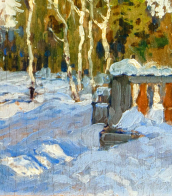

Francesco Solimena was an Italian painter of the seventeenth and eighteenth centuries. He is known as a representative of the Neapolitan school of late Baroque painting. The painter's creativity was highly appreciated by his contemporaries, during his long career he earned a large fortune by selling his works. The artist's biography is closely linked to Naples, the city in which the great genius spent most of his life.
Francesco Solimena was devoted to the religious genre, for which he was often called "Abbot Ciccio" during his lifetime. He educated many famous artists. Solimena's paintings are now in museums in St. Petersburg (Hermitage), London (National Gallery), New York (Metropolitan Museum of Art), Paris (Louvre) and other cities.
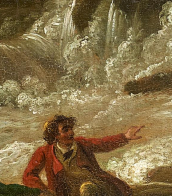

Francesco Solimena was an Italian painter of the seventeenth and eighteenth centuries. He is known as a representative of the Neapolitan school of late Baroque painting. The painter's creativity was highly appreciated by his contemporaries, during his long career he earned a large fortune by selling his works. The artist's biography is closely linked to Naples, the city in which the great genius spent most of his life.
Francesco Solimena was devoted to the religious genre, for which he was often called "Abbot Ciccio" during his lifetime. He educated many famous artists. Solimena's paintings are now in museums in St. Petersburg (Hermitage), London (National Gallery), New York (Metropolitan Museum of Art), Paris (Louvre) and other cities.
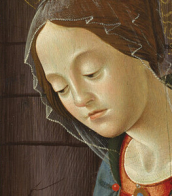

Francesco Solimena was an Italian painter of the seventeenth and eighteenth centuries. He is known as a representative of the Neapolitan school of late Baroque painting. The painter's creativity was highly appreciated by his contemporaries, during his long career he earned a large fortune by selling his works. The artist's biography is closely linked to Naples, the city in which the great genius spent most of his life.
Francesco Solimena was devoted to the religious genre, for which he was often called "Abbot Ciccio" during his lifetime. He educated many famous artists. Solimena's paintings are now in museums in St. Petersburg (Hermitage), London (National Gallery), New York (Metropolitan Museum of Art), Paris (Louvre) and other cities.
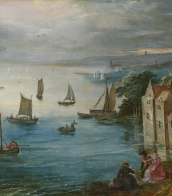

Francesco Solimena was an Italian painter of the seventeenth and eighteenth centuries. He is known as a representative of the Neapolitan school of late Baroque painting. The painter's creativity was highly appreciated by his contemporaries, during his long career he earned a large fortune by selling his works. The artist's biography is closely linked to Naples, the city in which the great genius spent most of his life.
Francesco Solimena was devoted to the religious genre, for which he was often called "Abbot Ciccio" during his lifetime. He educated many famous artists. Solimena's paintings are now in museums in St. Petersburg (Hermitage), London (National Gallery), New York (Metropolitan Museum of Art), Paris (Louvre) and other cities.
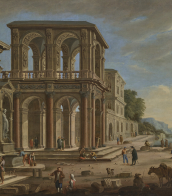

Francesco Solimena was an Italian painter of the seventeenth and eighteenth centuries. He is known as a representative of the Neapolitan school of late Baroque painting. The painter's creativity was highly appreciated by his contemporaries, during his long career he earned a large fortune by selling his works. The artist's biography is closely linked to Naples, the city in which the great genius spent most of his life.
Francesco Solimena was devoted to the religious genre, for which he was often called "Abbot Ciccio" during his lifetime. He educated many famous artists. Solimena's paintings are now in museums in St. Petersburg (Hermitage), London (National Gallery), New York (Metropolitan Museum of Art), Paris (Louvre) and other cities.
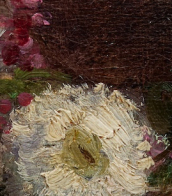

Francesco Solimena was an Italian painter of the seventeenth and eighteenth centuries. He is known as a representative of the Neapolitan school of late Baroque painting. The painter's creativity was highly appreciated by his contemporaries, during his long career he earned a large fortune by selling his works. The artist's biography is closely linked to Naples, the city in which the great genius spent most of his life.
Francesco Solimena was devoted to the religious genre, for which he was often called "Abbot Ciccio" during his lifetime. He educated many famous artists. Solimena's paintings are now in museums in St. Petersburg (Hermitage), London (National Gallery), New York (Metropolitan Museum of Art), Paris (Louvre) and other cities.
